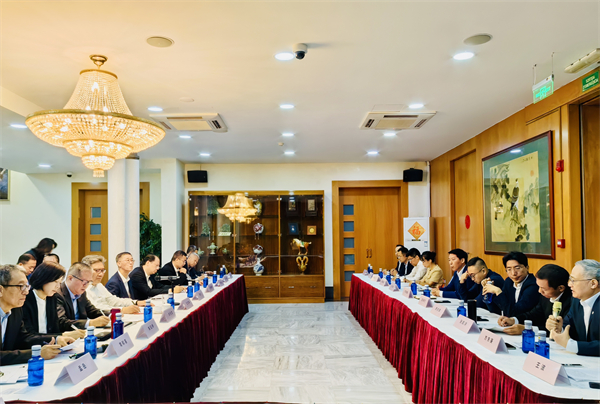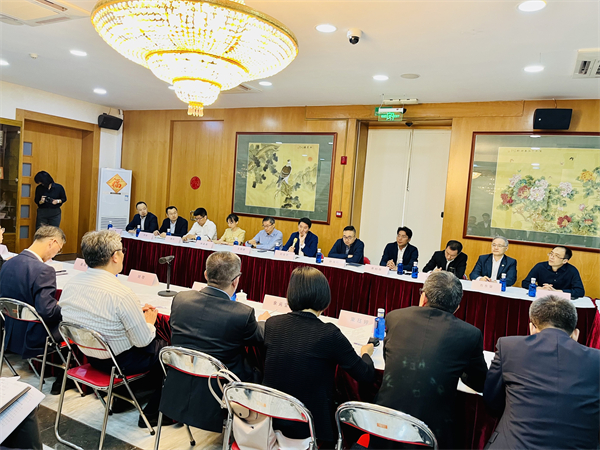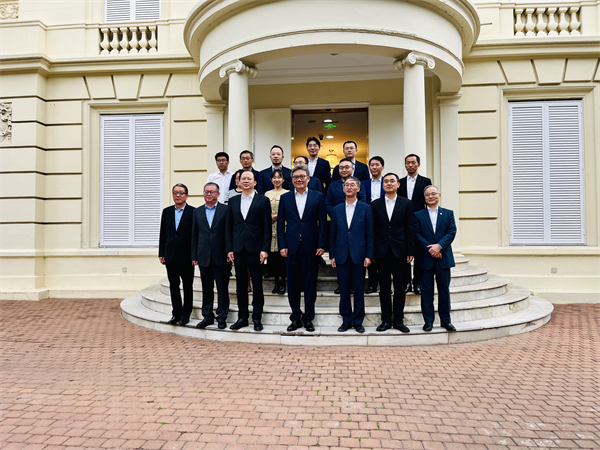China Sounds Alarm Over Rising EU Trade Protectionism
Visiting Chinese Commerce Minister Wang in Barcelona says EU Protectionism Targets the Country with "Three Arrows," Calling Overcapacity "False Narrative"
CCCEU and Members Attend a Roundtable Hosted by Wang
On the late afternoon of June 1, 2024, during his visit to Spain, Chinese Minister of Commerce Wang Wentao hosted a roundtable with the CCCEU and Chinese enterprises in Barcelona. Addressing the business community's concerns regarding the EU's anti-subsidy investigation into Chinese electric vehicles, the EU's "Foreign Subsidies Regulation," and the "International Procurement Instrument," Minister Wang stated that these represent the "three arrows" of protectionism that the European side has intensively shot at the Chinese side, resulting in increased friction and risk in China-EU trade relations. Meanwhile, he dismissed the "overcapacity" narrative in Chinese new energy vehicle sector as a false proposition.

Wang: EU Protectionism Targets China with "Three Arrows"
During the roundtable, representatives from China Chamber of Commerce to the EU (CCCEU), the China Chamber of Commerce in Spain, and enterprises in the multiple sectors discussed the EU's anti-subsidy investigation into Chinese electric vehicles along with its negative impact. They also highlighted the adverse effects of the EU's deployment of tools such as the "Foreign Subsidies Regulation" (FSR) and the "International Procurement Instrument" (IPI) to initiate intensive investigations since the beginning of this year. These actions have led Chinese enterprises to withdraw from relevant public biddings but still face "secondary damage." Last week, a company involved filed an appeal at the EU Court regarding the Commission's handling of FSR.
The CCCEU learned that since January this year, the EU has introduced multiple trade protectionist measures against China. This dense concentration of trade protectionist measures has significantly increased the likelihood of China-EU trade frictions growing "out of control" to a dangerous degree, causing widespread worry.
Minister Wang responded by stating that the EU's anti-subsidy investigation into Chinese electric vehicles, its FSR investigations into railway locomotives, photovoltaics, wind turbines, and security inspection equipment, as well as the IPI investigation into medical devices procurement, are the "three arrows" that Europe's protectionism has fired at China. He went on to say that China's position is clear: the essence of China-Europe collaboration is based on complementary strengths, mutual benefit, and win-win result. China promotes dialogues and consultation as viable ways to address economic and trade frictions.
At the discussion, business representatives urged China to take measures in the event that bilateral trade tensions escalated beyond control. Minister Wang assured at the roundtable that China's stance remains steadfast. "We will take all measures to safeguard the legitimate rights and interests of Chinese enterprises," he said.
China Dismisses Notion of "Overcapacity" as a False Proposition
Minister Wang highlighted that, as emphasized by experts, Chinese enterprises have made substantial investments in research and development in new energy and its green transition. Engaging in rigorous market competition, they have cultivated cost efficiencies across the entire supply chain. Driven by a competitive ethos and buoyed by the nurturing environment of the Chinese market, these enterprises have successfully transformed once costly new energy products—including photovoltaics, batteries, and electric vehicles—alongside their associated green technologies, into globally beneficial public goods.
Statistics show that the overwhelming majority of electric vehicles manufactured in China are destined for the domestic market, with approximately 12.6% (1.26 million out of roughly 10 million) earmarked for export, of which around 5% (470,000 vehicles) find their way to the EU. In comparison, Germany annually produces 4.2 million cars and exports 3.2 million, while France boasts significant exports of wine and other agricultural commodities.
Minister Wang highlighted that countries possess distinct resource endowments and cultivate industries where they excel, facilitating globalization and trade flows. Such dynamics should not be solely interpreted as indicative of overcapacity.
Minister Wang underscored that the expansion of new energy vehicles is currently on an upswing, highlighting the global shortage in production capacity within this sector as a critical concern. The EU has emerged as a frontrunner in achieving carbon peak and carbon neutrality objectives, notably becoming the first to prohibit the sale of new gasoline and diesel vehicles from 2035. This underscores a favorable policy landscape of green transition. Amidst the global shift towards a green economy, Chinese enterprises have adeptly navigated this landscape, leveraging technological innovations and cost efficiencies to execute strategic maneuvers akin to a "lane change." Europe's embrace of protectionist measures, however, is improbable to tackle the underlying competitiveness challenge but rather to prompt unintended consequences, potentially detrimental to the interests of European consumers, through the imposition of protectionist tariffs.
Minister Wang emphasized that the competitive advantages of Chinese enterprises contribute to making global green products more accessible. He argued that the EU cannot advocate for climate action while concurrently resorting to protectionist measures. Trade protectionism, he said, ultimately undermines free trade and global industrial cooperation.
Minister Wang Wentao responded to the concern raised by Chinese enterprises regarding Europe's overly broad interpretation of security. He underscored that an overstretch of national security is counterproductive to fostering a conducive environment for China-EU investment and economic relations.
Minister Wang concluded the roundtable by expressed his hope for Chinese enterprises operating in Europe to advance steadily. China's Ambassador to Spain Yao Jing, representatives from China Construction Bank Barcelona Branch, China Three Gorges International Corporation, COSCO Shipping Lines Spain, Air China Barcelona Office, AVIC International Aritex, CCIC Spain, Chint Spain, Huayi Compressor Barcelona, Baosteel Spain, Haier Spain, and Qianjiang Motorcycles Spain were present at the conference.



 Login
Login Login
Login CCCEU and Gunnercooke Successfully Host Webinar on CSDDD and FLR Compliance to Guide Chinese Businesses
CCCEU and Gunnercooke Successfully Host Webinar on CSDDD and FLR Compliance to Guide Chinese Businesses Cultivating responsible China-EU business leaders essential to tackling global challenges
Cultivating responsible China-EU business leaders essential to tackling global challenges



